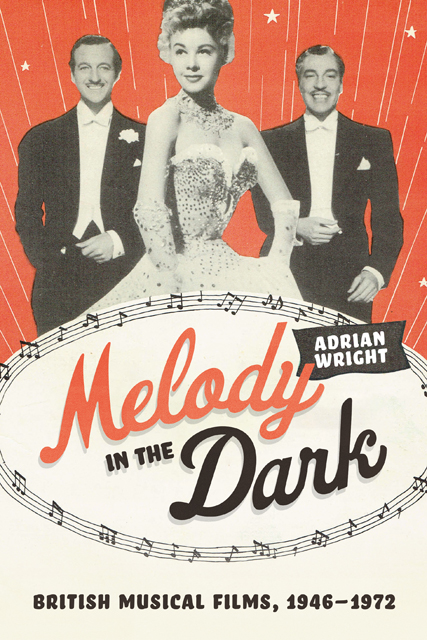Book contents
- Frontmatter
- Dedication
- Contents
- List of Illustrations
- Preface and Acknowledgements
- 1945 (from May 1945)
- 1946
- 1947
- 1948
- 1949
- 1950
- 1951
- 1952
- 1953
- 1954
- 1955
- 1956
- 1957
- 1958
- 1959
- 1960
- 1961
- 1962
- 1963
- 1964
- 1965
- 1966
- 1967
- 1968
- 1969
- 1970
- 1972
- Notes to the Text
- Select Bibliography
- Index of Film Titles
- General Index
- Frontmatter
- Dedication
- Contents
- List of Illustrations
- Preface and Acknowledgements
- 1945 (from May 1945)
- 1946
- 1947
- 1948
- 1949
- 1950
- 1951
- 1952
- 1953
- 1954
- 1955
- 1956
- 1957
- 1958
- 1959
- 1960
- 1961
- 1962
- 1963
- 1964
- 1965
- 1966
- 1967
- 1968
- 1969
- 1970
- 1972
- Notes to the Text
- Select Bibliography
- Index of Film Titles
- General Index
Summary
The delicacy of Wilson’s work and the vivid affection for period nuance that Vida Hope’s direction instilled into it suggested that turning it into any sort of film might be like putting a butterfly into a killing bottle
The Boy FriendThe Boy Friend
February
And so to Ken Russell’s reworking of Sandy Wilson’s pastiche musical of the 1920s The Boy Friend. One of the most successful British stage musicals of the 1950s, this most modest and delicate of confections began life at the tiny Players’ Theatre in 1953. The delicacy of Wilson’s work and the vivid affection for period nuance that Vida Hope’s direction instilled into it suggested that turning it into any sort of film might be like putting a butterfly into a killing bottle.
There was general agreement that Twiggy made for a delightful Polly Browne, the heroine pupil at a school for young ladies in Nice. Those considered for the film through the years were Liza Minnelli (patently unsuitable), Julie Andrews (who had played Polly in the original Broadway production), and (surely not?) Debbie Reynolds. Twiggy, at the very least, breathed fresh air into the endeavour. She and Christopher Gable as boyfriend Tony Brocklehurst brought charm and lightness to their roles, alongside others often associated with West End revues, notably Max Adrian as Max Mandeville and Moyra Fraser as Mme Dubonnet. In fact, Wilson’s translation from stage to film set Wilson’s story at an uncomfortable adjunct as a show within a show in which two of Dubonnet’s girls, madcap Maisie (Antonia Ellis) and Fay (Georgina Hale), were now revealed as lesbians, although this relationship does not materialise in the finished film.
It was punctilious of Russell to use so much of Wilson’s theatre score, now rearranged by Peter Maxwell Davies and incorporating the title song and ‘Perfect Young Ladies’ introducing the students of Mme Dubonnet, ‘Won’t You Charleston with Me?’ performed by Tommy Tune and Ellis, and ‘Fancy Forgetting’ performed by Fraser and Bryan Pringle. There were two duets for Twiggy and Gable: ‘I Could Be Happy with You’, clearly reminiscent of Vincent Youman’s ‘I Want to Be Happy’, and ‘A Room in Bloomsbury’.
- Type
- Chapter
- Information
- Melody in the DarkBritish Musical Films, 1946-1972, pp. 310 - 314Publisher: Boydell & BrewerPrint publication year: 2023



